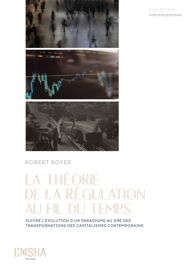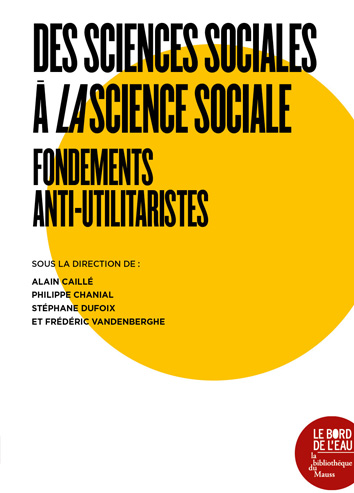Suivre l’évolution d’un paradigme au gré des transformations des capitalismes contemporains, R. Boyer (dir), Avril 2018, Editions des maisons des sciences de l’homme associées, Collection interdisciplinaire EMSHA , La Plaine Saint Denis.
This book presents the reader with an insight into the intellectual trajectory of a group of researchers who have sought to shed light on certain questions related to research on economics and society according to the approaches developed by the Theory of Regulation. through a permanent back and forth between the teachings and predictions of the conceptual framework developed to account for the rupture of the glorious Thirties and the reality of the evolutions observed since then.
The peculiarity of this book is to show the adjustment of this paradigm from year to year until the contemporary period. In a way, he proposes to visit the laboratory from which came the numerous publications derived from the Theory of Regulation.
in Des sciences sociales à LA science sociale. Fondements anti-utilitaristes, Sous la direction de Alain Caillé, Philippe Chanial, Stéphane Dufoix et Frédéric Vandenberghe, 2018, Editions le bord de l’eau, Chap. III, p. 65-81
At a time when the quarrel rages between sociologists in France, as there is a year between economists, it is urgent to recall that the word “sociology” has long been used to refer to social science in general (including economics and political philosophy). as well as anthropology, history or geography) and that it is too important a thing to entrust to sociologists alone. It is the business of all social scientists. Alongside the specialized social sciences, it is a generalist social science, the only one capable of thinking of the world in all its complexity, that we must now make happen and institute. A social science that is also urgent to found once again on a non-utilitarian basis and in a resolute openness to all sociologies and all the social sciences of the whole world, and not only to those who come from ‘West. Replaced in this more general setting, most chapel quarrels resolve themselves. For the greater good of a shared desire to know. That such an objective is accessible is what the variety and quality of the authors gathered here, anthropologists, economists, geographers, historians, philosophers and sociologists testify to.

